Search
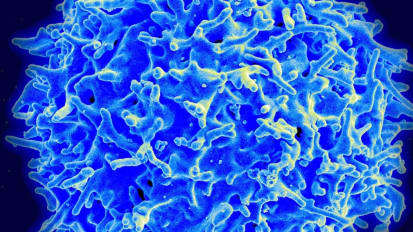 News
News
Killing Pancreatic Cancer with T Cells that Turbocharge Themselves
Novel Immunotherapy Pumps Out Cancer-Killing Cytokines Only Inside the Tumor Document
Document
UCSF Bariatric Surgery Center
UCSF Bariatric Surgery Center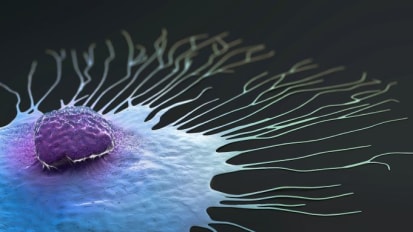 News
News
Breast Cancer Risk Calculator Can Assess Risk of Advanced Breast Cancer
Upcoming Conference to Focus on Breast Density and Prediction of Advanced and Interval Breast Cancer Risk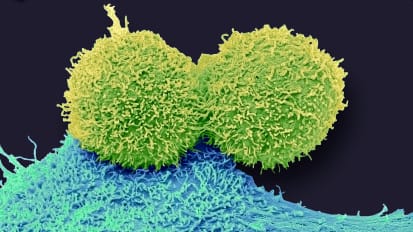 News
News
UCSF and I-SPY 2 Breast Cancer Researchers Develop Newly Redefined Breast Cancer Response Subtypes
Research scientists and statisticians from UC San Francisco have developed improved biomarker classifications as part of their research results in the I-SPY 2 trial for high-risk breast cancer patients. News
News
Drug Targeting Tauopathies in Mice Reveals Sex Differences in Response
Microglia are cells that are central to both brain health as well as disease progression in many neurological conditions. News
News
Drug Turns Cancer Gene Into "Eat Me" Flag for Immune System
UCSF-led study shows promising pre-clinical results in killing cancer cells resistant to current KRAS-targeted treatments.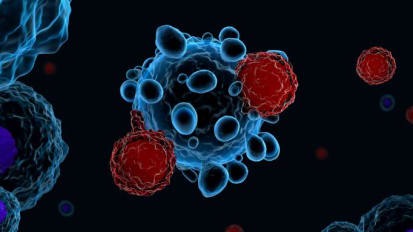 News
News
How AI Found the Words to Kill Cancer Cells
Predictive model allows researchers to encode commands for cells to carry out. News
News
“CAR Pooling” Screens Identify Most Effective Cancer Immunotherapy Cells
New approach by UCSF researchers analyzes how well different re-engineered T cells work against cancer. Document
Document
UCSF Laser Interstitial Thermal Therapy
UCSF Laser Interstitial Thermal Therapy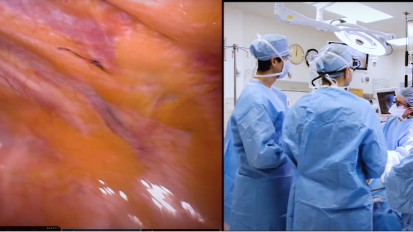 News
News
Enhancing Care for Thoracic Oncology Surgery Patients
Building on a decades-long reputation for innovation in thoracic surgery, UC San Francisco’s Thoracic Surgery and Oncology Clinic has improved the overall experience for patients undergoing lung and esophageal cancer treatment while continuing to maintain strong outcomes.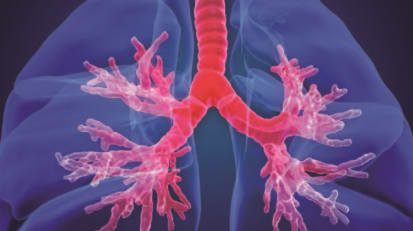 Document
Document
UCSF Lung Transplant Clinic in Roseville
UCSF Lung Transplant Clinic in Roseville News
News
Aggressive Surgery Increases Survival with Low-Grade Brain Tumors
UCSF-Led study shows extensive resection results in longer survival for glioma patients News
News
Race-Based Equations May Lead to Under-Treatment of Lung Disease in Black Patients
Using race-based equations to evaluate lung disease -- a practice promoted in the 2019 guidelines of the American Thoracic Society -- may mean that severe lung disease in Black patients is classified as moderate disease, according to a UCSF-led study.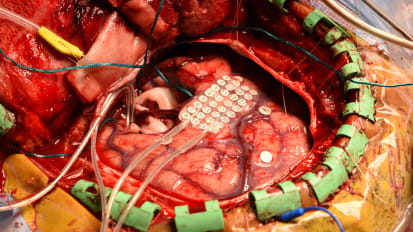 News
News
Cerebral Cavernous Malformation Treatments Relieve Disparate Symptoms
Two patients with severe yet different neurological symptoms were referred to UCSF for emergent neurosurgical evaluation. Both were found to have previously undiagnosed cerebral cavernous malformations (CCMs), but each patient’s treatment was unique. News
News
First “Neuroprosthesis” Expands Vocabulary and Mobility for Man With Paralysis in New Milestone
The first “neuroprosthesis,” developed by UCSF researchers in 2021, translates brain signals from a man with severe paralysis directly into words that appear as text on a screen. Using this brain-machine interface, he can also move a robotic arm to manipulate objects.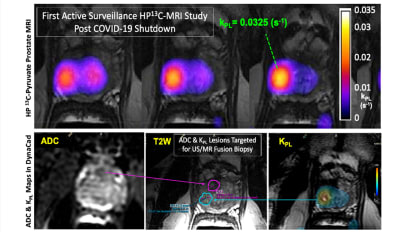 News
News
Novel Metabolic Imaging Method Detects Prostate Cancer Aggressiveness
UCSF investigators have shown that adding an emerging metabolic imaging technique to MR–transrectal ultrasound fusion prostate biopsies makes it possible to detect the extent and aggressiveness of prostate cancer more accurately than ever. Document
Document
Cardiology Transfer Guide
Cardiology Transfer Guide Document
Document
UCSF Health Transfer Center Intake Workflow
UCSF Health Transfer Center Intake Workflow News
News
UCSF Research Instrumental in Approval of Breakthrough Diabetes Therapy
The US Food and Drug Administration (FDA) recently approved the use of a new drug Teplizumab, an immunotherapy drug which has been shown to significantly delay the onset of type 1 diabetes. News
News
Alan P. Venook, MD, Recognized With Luminary Award for Gastrointestinal Cancers
Alan P. Venook, MD, a renowned expert in colorectal and liver cancers, has been announced as one of the winners of the 2022 Luminary Awards in Gastrointestinal (GI) Cancers. News
News
International Hematologic Conference Features UCSF Health Experts
Hematologists and oncologists from around the world will present new research and clinical findings at the American Society of Hematology’s (ASH) 64th Annual Meeting and Exposition.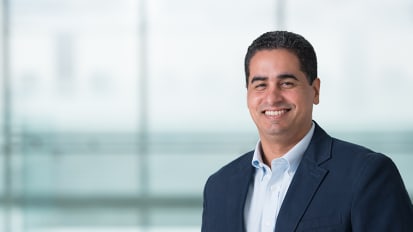 News
News
Rethinking How Cancer Cells Evade Targeted Therapy
Glioblastomas (GBMs) are incurable brain tumors with a prognosis of about one-and-a half years on average. They are highly resistant to treatment and have defied all attempts at precision therapy.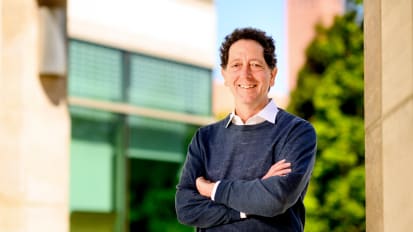 News
News
UCSF Researchers Uncover New Pathway for Molecular Cancer Drug Therapies
In a study published December 8, 2022 in Science, UCSF researchers Kevin Lou, an MD-PhD student, Luke Gilbert, PhD, and Kevan Shokat, PhD, reveal the discovery of a cellular uptake pathway important for larger molecules.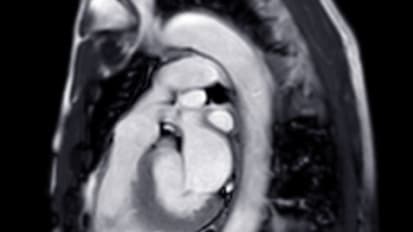 News
News
UCSF Researchers Develop Prediction Model of Aortic Aneurysm
Ascending thoracic aortic disease is an important cause of sudden death in the U.S., yet most aortic aneurysms are identified incidentally.

